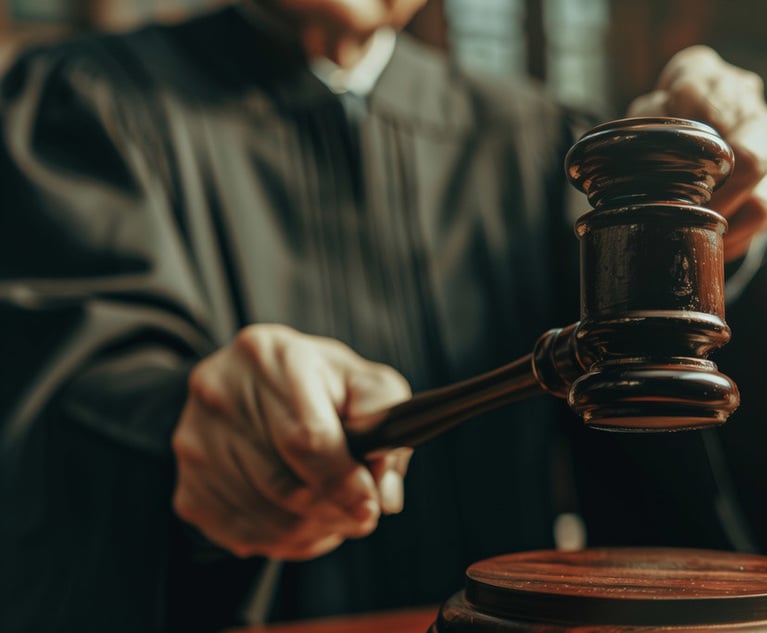 Aerial view of the Supreme Court of Canada in Ottawa.
Aerial view of the Supreme Court of Canada in Ottawa. The Marble Palace Blog: At Canada's Supreme Court, There Are No Leaks
The Supreme Court of Canada gives journalists advance access to court decisions before they are made public, giving them time to better understand and report about the cases. Secrecy-prone SCOTUS is not likely to follow suit.
May 12, 2022 at 03:44 PM
4 minute read
Imagine this: Journalists who cover the Supreme Court are ushered into a room. They peruse a Supreme Court decision before it's released to the public. A designated "Executive Legal Officer" briefs the journalists about the case and the outcome.
But no one jumps the gun by leaking the content of the decision. Why? Because the journalists are in a "lock-up," surrendering their cellphones temporarily so they cannot contact their newsrooms. Later in the day, the decision is made public, and the journalists churn out their stories.
The Supreme Court I'm referring to is the Supreme Court of Canada. The justices of that court have committed themselves to openness and access for journalists, believing the news media are the most important conduit between the court and the public. "The freedom of the press to report on judicial proceedings is a core value," the court has stated.
In light of the bombshell leak of the U.S. Supreme Court's draft abortion opinion last week, I contacted the Canadian high court and asked if they've had any trouble with leaks, especially with the lock-up arrangement that gives journalists a peek preview. Renée Maria Tremblay, the deputy executive legal officer, replied, "I confirm that, to our knowledge, no such leak has occurred at the Supreme Court of Canada."
David Schneiderman, a law professor at the University of Toronto, said that a leak of a draft opinion would be unlikely at Canada's Supreme Court because "the court, its clerks and the legal community are not as divided as in the U.S." Schneiderman, co-author of a book about media coverage of the Supreme Court of Canada, added that the lock-up is "a much better way of informing the press and the public about what is going on. We will not have reporters thumbing through a ruling on live TV on the courthouse steps, as I recall happened in Bush v. Gore."
During the whirlwind of the controversy over the Alito leak, I turned toward Canada mainly because of a new law review article titled "The Supreme Court and the People: Communicating Decisions to the Public," written by Loyola University Chicago School of Law professor Barry Sullivan and Ramon Feldbrin, a JSD candidate at the University of Chicago Law School.
The thrust of the article is that in various degrees with other countries such as Canada, Germany and Israel, the U.S. Supreme Court has done a mixed job of making its procedures and decisions understandable and accessible to the public and the press. The Alito leak is unlikely to improve the situation in the future.
"Over the years, the court's decisions have become more complex, prolix, and fractured, making it difficult and time-consuming for anyone outside the professional elites to determine what the court has held," the authors said in the article. "As a result, the court's interpretations of the Constitution remain shrouded in mystery and beyond the ken of many," including journalists.
Sullivan said the trend has been exacerbated by the growth of the so-called shadow docket, whereby Supreme Court decisions are handed down with scant, if any, explanation of the reasoning behind their rulings.
In an interview, Sullivan said that when he circulated his article to others, he got some pushback about Canada's lock-up procedure because it seemed so obvious that at the U.S. Supreme Court, a similar lock-up would "just lead to leaks." And when it comes to helping journalists do their jobs, Sullivan finds the justices to be aloof and indifferent.
In contrast with the Canadian commitment toward public access, at the U.S. Supreme Court, "secrecy is part of the job," as a recent Associated Press article put it. For example, unlike presidents who make their health status public yearly, most justices keep their medical conditions private.
After Justice Antonin Scalia died in 2016 and his health problems were made public, I asked all current justices about their own health. Speaking for his colleagues, Chief Justice John Roberts Jr. responded that the court will provide health information "when a need to inform the public arises."
NOT FOR REPRINT
© 2025 ALM Global, LLC, All Rights Reserved. Request academic re-use from www.copyright.com. All other uses, submit a request to [email protected]. For more information visit Asset & Logo Licensing.
You Might Like
View All
Who Are the Judges Assigned to Challenges to Trump’s Birthright Citizenship Order?

Senator Plans to Reintroduce Bill to Split 9th Circuit

'If the Job Is Better, You Get Better': Chief District Judge Discusses Overcoming Negative Perceptions

Fight Over Amicus-Funding Disclosure Surfaces in Google Play Appeal
Trending Stories
- 1Big Law Firms Sheppard Mullin, Morgan Lewis and Baker Botts Add Partners in Houston
- 2Lack of Jurisdiction Dooms Child Sex Abuse Claim Against Archdiocese of Philadelphia, says NJ Supreme Court
- 3DC Lawsuits Seek to Prevent Mass Firings and Public Naming of FBI Agents
- 4Growth of California Firms Exceeded Expectations, Survey of Managing Partners Says
- 5Blank Rome Adds Life Sciences Trio From Reed Smith
Who Got The Work
J. Brugh Lower of Gibbons has entered an appearance for industrial equipment supplier Devco Corporation in a pending trademark infringement lawsuit. The suit, accusing the defendant of selling knock-off Graco products, was filed Dec. 18 in New Jersey District Court by Rivkin Radler on behalf of Graco Inc. and Graco Minnesota. The case, assigned to U.S. District Judge Zahid N. Quraishi, is 3:24-cv-11294, Graco Inc. et al v. Devco Corporation.
Who Got The Work
Rebecca Maller-Stein and Kent A. Yalowitz of Arnold & Porter Kaye Scholer have entered their appearances for Hanaco Venture Capital and its executives, Lior Prosor and David Frankel, in a pending securities lawsuit. The action, filed on Dec. 24 in New York Southern District Court by Zell, Aron & Co. on behalf of Goldeneye Advisors, accuses the defendants of negligently and fraudulently managing the plaintiff's $1 million investment. The case, assigned to U.S. District Judge Vernon S. Broderick, is 1:24-cv-09918, Goldeneye Advisors, LLC v. Hanaco Venture Capital, Ltd. et al.
Who Got The Work
Attorneys from A&O Shearman has stepped in as defense counsel for Toronto-Dominion Bank and other defendants in a pending securities class action. The suit, filed Dec. 11 in New York Southern District Court by Bleichmar Fonti & Auld, accuses the defendants of concealing the bank's 'pervasive' deficiencies in regards to its compliance with the Bank Secrecy Act and the quality of its anti-money laundering controls. The case, assigned to U.S. District Judge Arun Subramanian, is 1:24-cv-09445, Gonzalez v. The Toronto-Dominion Bank et al.
Who Got The Work
Crown Castle International, a Pennsylvania company providing shared communications infrastructure, has turned to Luke D. Wolf of Gordon Rees Scully Mansukhani to fend off a pending breach-of-contract lawsuit. The court action, filed Nov. 25 in Michigan Eastern District Court by Hooper Hathaway PC on behalf of The Town Residences LLC, accuses Crown Castle of failing to transfer approximately $30,000 in utility payments from T-Mobile in breach of a roof-top lease and assignment agreement. The case, assigned to U.S. District Judge Susan K. Declercq, is 2:24-cv-13131, The Town Residences LLC v. T-Mobile US, Inc. et al.
Who Got The Work
Wilfred P. Coronato and Daniel M. Schwartz of McCarter & English have stepped in as defense counsel to Electrolux Home Products Inc. in a pending product liability lawsuit. The court action, filed Nov. 26 in New York Eastern District Court by Poulos Lopiccolo PC and Nagel Rice LLP on behalf of David Stern, alleges that the defendant's refrigerators’ drawers and shelving repeatedly break and fall apart within months after purchase. The case, assigned to U.S. District Judge Joan M. Azrack, is 2:24-cv-08204, Stern v. Electrolux Home Products, Inc.
Featured Firms
Law Offices of Gary Martin Hays & Associates, P.C.
(470) 294-1674
Law Offices of Mark E. Salomone
(857) 444-6468
Smith & Hassler
(713) 739-1250








